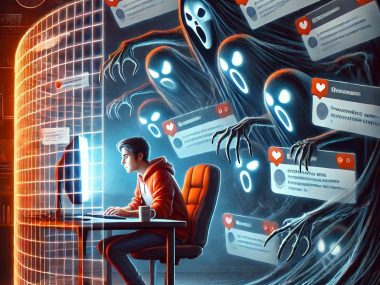Square Enix is in hot water over the Playerscope plugin, which collects Final Fantasy 14 (FF14) players’ account data that isn’t normally public. Players are on edge since the plugin can be used for stalking or harassment within the game. It doesn’t help that Square Enix doesn’t enforce its ban on third-party tools in FF14.
Why This is a Security Concern
According to FF14 director Naoki Yoshida, the Playerscope plugin “displays a segment of an FFXIV character’s internal account ID, which is then used to correlate information on other characters linked to the same FFXIV service account.”
- This means the plugin can reveal a player’s account ID, all their alternate characters, and retainers, allowing people to link alts to a main character.
- Playerscope can also track gaming activity, including location history and the last time someone logged in.
- However, it does not have access to payment information or real-life addresses.
Not only does this plugin collect account data without the player’s knowledge or consent, but the only way to opt out is by joining the mod’s Discord server.
What makes this even more frustrating is that Square Enix left the door open for this exploit.
- For the Dawntrail expansion, Square Enix revamped the blacklist system to address long-standing issues of stalking and harassment in FF14.
- Unfortunately, these changes made it easier for Playerscope to expose a player’s account info in a public database.
FF14’s developers were reportedly aware of the risks tied to account-wide IDs and blacklisting for at least six months before Playerscope was released, yet they failed to implement safeguards. The only real protection for players is to avoid logging in, which is unacceptable.
What Square Enix Can Do to Fix This
Square Enix has acknowledged Playerscope’s existence and threatened legal action against the mod’s creator. While this is a start, it’s not a solution. The real fix is to make the mod unusable.
One way to do this is by altering how account IDs are handled so mods can’t exploit them. Stronger anti-cheat detection could also help prevent similar issues in the future.
Beyond this case, Square Enix needs a clearer stance on mods. Final Fantasy 14’s terms of service prohibit third-party tools, yet Square Enix rarely enforces this rule. This creates confusion, as some players use mods for harmless quality-of-life improvements while others exploit them for unfair advantages.
Right now, Square Enix bans mods but rarely takes action unless a report is filed. Other developers handle this differently:
- Blizzard allows certain mods in World of Warcraft as long as they don’t provide an unfair advantage.
- Riot Games enforces strict bans on third-party modifications in League of Legends to maintain competitive integrity.
Square Enix’s inconsistent stance creates uncertainty. A clearer, more consistent policy—like Blizzard’s or Riot’s—could help balance player experience and security.
How Players Can Protect Themselves
Until Square Enix takes real action, players have limited options to protect their privacy. Here are a few steps you can take:
- Pause playing the game: Since Square Enix hasn’t patched the game to disable the mod, the safest option is to stop playing.
- Avoid engaging with Playerscope-related content: Searching for your characters in the database or discussing the mod could expose you further. Square Enix is working to remove it, so it’s best to steer clear.
- Limit your online presence: If you frequently talk about your characters or link them to your main account on social media or Discord, consider keeping a low-profile.
- Push for a real solution: The more players speak out, the more likely Square Enix will take meaningful action.
This Could Happen in Other Games
This issue isn’t just about Final Fantasy 14—it’s a reminder that security vulnerabilities exist in many online games. Players should always be aware of how their data is stored and what third-party tools can access.
Developers, on the other hand, need to be proactive in closing security gaps before they become problems.
For now, staying informed, taking precautions, and pressuring Square Enix to act is the best course of action. Fixing this issue benefits everyone—players who want a safe gaming experience and developers who want a secure and trusted game.






